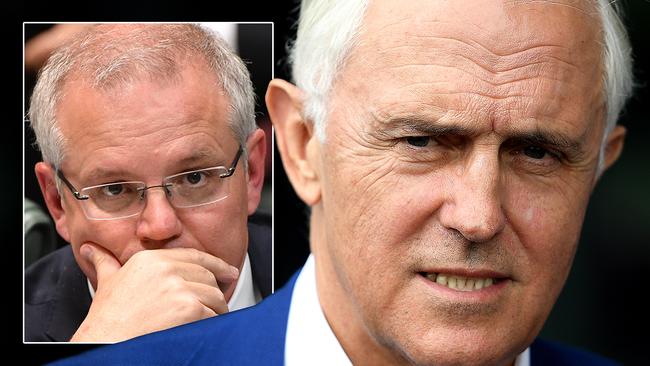
Scott Morrison ends the year stuck between a hammer and the anvil.
Helping strike the blows is Malcolm Turnbull.
His intervention last week in the preselection shenanigans of the Liberal Party’s NSW division are viewed inside the partyroom as a deliberate attempt to bugger-up the last sitting week of parliament for the government.
Turnbull will deny this.
But the most recent former prime minister knows better than anyone that perceptions in politics are everything.
The perception Turnbull may be unaware of, however, is the one that Coalition voters are developing when it comes to his behaviour.
A Newspoll question on this issue revealed that an overwhelming number of Coalition voters (56 per cent) believed his criticism of the government and his public commentary constituted disloyalty to the Liberal Party.
Only 34 per cent of Coalition voters believed otherwise.
Furthermore, they believed he should stop talking altogether and keep his thoughts to himself. (53 per cent compared with 43 per cent)
The problem for Morrison is that few Coalition voters believed he should be turfed out of the Liberal Party because of it (55 per cent to 36 per cent). This suggests that Turnbull can continue to speak his mind, knowing that the party is unlikely to want a martyr in its midst. He will see this as a mandate to continue.
The numbers are revealing for what conservatives have consistently claimed was the problem with Turnbull as leader of the Liberal Party.
Labor and Greens voters are far more sympathetic to Turnbull than are Coalition supporters, but that doesn’t necessarily mean that come polling day they will change their vote because of it.
More than three-quarters of Greens voters and almost as many Labor voters believe Turnbull was not being disloyal, should continue to keep speaking his mind and should not be punted from the Liberal Party.
None of this helps Morrison. Trying to appease Turnbull isn’t working. Attacking him doesn’t seem to either. The government’s only hopes are that the public tires of Turnbull or that he gets bored.
But Turnbull also offers hope.
The Coalition was in an arguably worse position under his leadership just more than a year ago. In November last year, the Coalition primary vote was 34 per cent and the two-party-preferred vote was 45-55 in favour of Labor.
When the government returned from the summer break, it had recovered to 48-52. By April, it was 49-51 and the government was back in the race.
For Bill Shorten, the last Newspoll of the year had potentially greater consequences.
The Labor leader will head to Adelaide this weekend for the ALP national conference. He will do so in the shadow of a federal election.
With poll numbers like this behind him, he will be welcomed as a hero with an unquestionable authority over conference, the unions and the Left.







